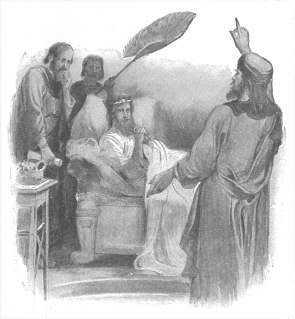
2 Kings 20:1-5
In those days Hezekiah became sick and was at the point of death. And Isaiah the prophet the son of Amoz came to him and said to him, "Thus says the LORD, 'Set your house in order, for you shall die; you shall not recover.'" Then Hezekiah turned his face to the wall and prayed to the LORD, saying, "Now, O LORD, please remember how I have walked before you in faithfulness and with a whole heart, and have done what is good in your sight." And Hezekiah wept bitterly. And before Isaiah had gone out of the middle court, the word of the LORD came to him: "Turn back, and say to Hezekiah the leader of my people, Thus says the LORD, the God of David your father: I have heard your prayer; I have seen your tears. Behold, I will heal you."
It is a moving story, and it caused me to relfect about the way we talk about God "answering prayer." Often, when someone asks, "Did God answer your prayer?" what we really mean is "Did God grant your request?" or "Did God say 'Yes'?" What if God did answer your prayer . . . and the answer is "No"?
We might say that this is what happened when Jesus prayed in the Garden of Gethsemane, "If it be possible, let this cup pass from me." But we know that Jesus was willing to take "No" for an answer because he goes on to say, "Nevertheless, not as I will, but as you will."
In 2 Kings 20, it seems that Hezekiah's willingness to take "No" for an answer is the key to his own healing. The resignation to God's will comes first; it is the first step in the healing process. That is why we tell people to pray for healing "according to thy will." God waited until Hezekiah would be content with a "No" before he responded with a "Yes."


1 comment:
It's also interesting that Hezekiah "Prayed toward the wall." Does that mean that he turned toward the Lord and prayed facing the Temple?
Post a Comment